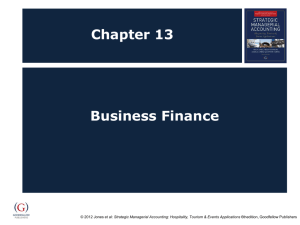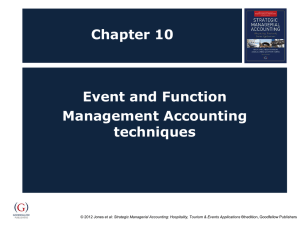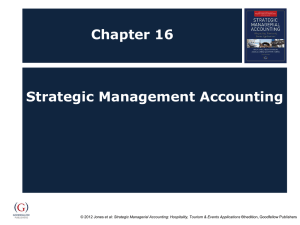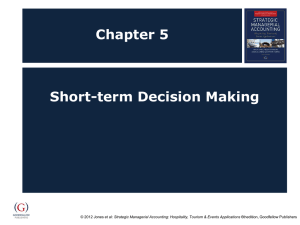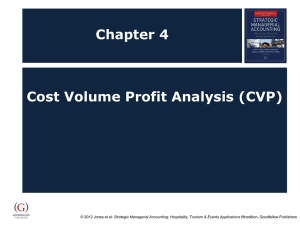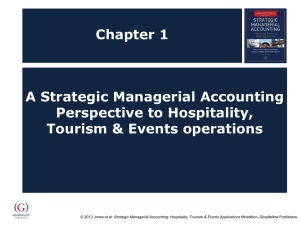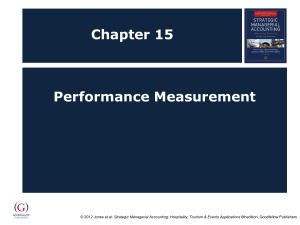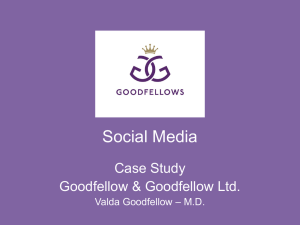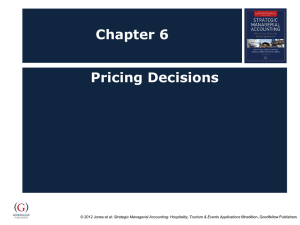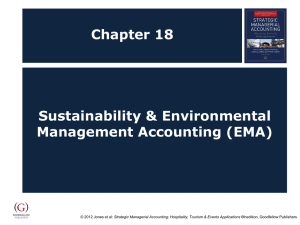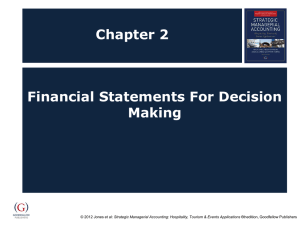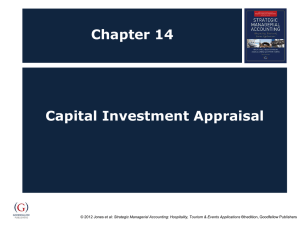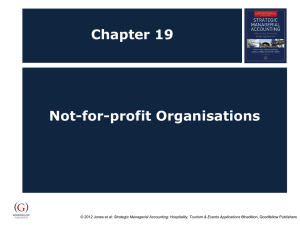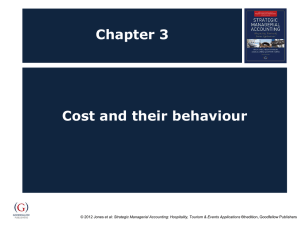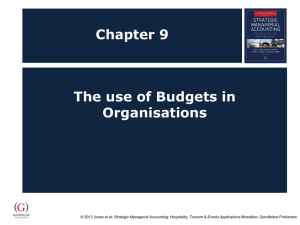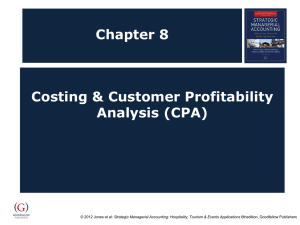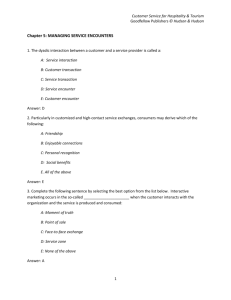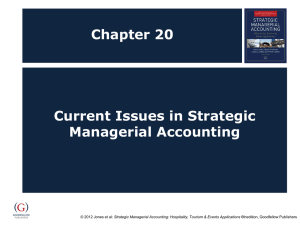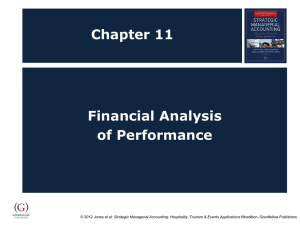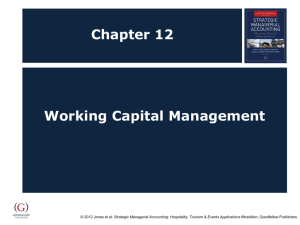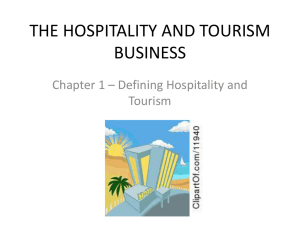Chapter 7 - Goodfellow Publishers
advertisement
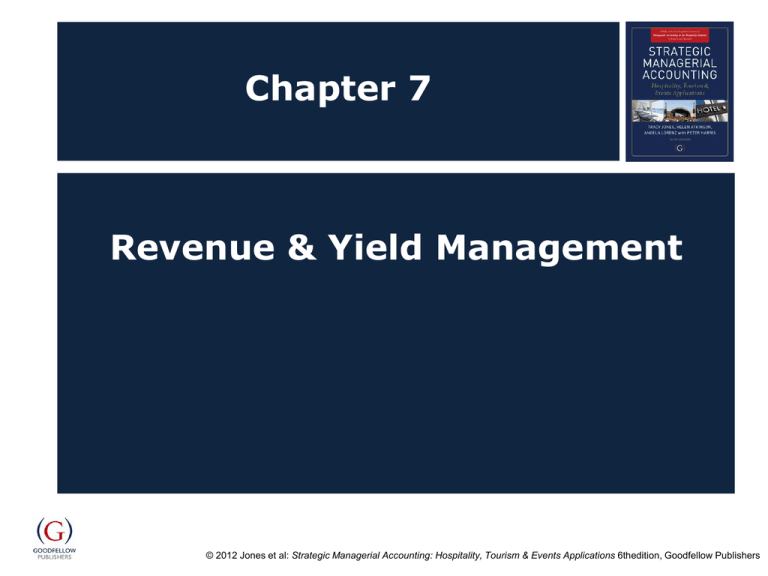
Chapter 7 Revenue & Yield Management © 2012 Jones et al: Strategic Managerial Accounting: Hospitality, Tourism & Events Applications 6thedition, Goodfellow Publishers Objectives After studying this topic you should be able to: Understand the concepts of yield/revenue management; Appreciate the characteristics needed for successful revenue management within organisations; Develop knowledge of revenue management calculations and processes; and Identify revenue management limitations in different environments, including profit maximisation issues. © 2012 Jones et al: Strategic Managerial Accounting: Hospitality, Tourism & Events Applications 6thedition, Goodfellow Publishers Yield Management Focuses on maximising the revenue yield from the combination of selling price and volume of activity. It could be seen as tactical, rather than strategic and had a narrow focus – for example selling a plane seat, event ticket, or a hotel room, but not considering ‘secondary’ spend in other areas © 2012 Jones et al: Strategic Managerial Accounting: Hospitality, Tourism & Events Applications 6thedition, Goodfellow Publishers Revenue Management Revenue management is seen as a development of yield management, it looks at ‘the bigger picture’, considering the fuller implications from a strategic perspective, so has a broader focus. © 2012 Jones et al: Strategic Managerial Accounting: Hospitality, Tourism & Events Applications 6thedition, Goodfellow Publishers Yield management (YM) formula YM% = Achieved Revenue * 100 Potential revenue © 2012 Jones et al: Strategic Managerial Accounting: Hospitality, Tourism & Events Applications 6thedition, Goodfellow Publishers Characteristics required for revenue management (pt 1) Product/Service is perishable Relatively fixed capacity Fluctuating demand Suitable cost structure © 2012 Jones et al: Strategic Managerial Accounting: Hospitality, Tourism & Events Applications 6thedition, Goodfellow Publishers Characteristics required for revenue management (pt 2) Duration control Advanced sales are common Ability to segment the market Overbooking policy © 2012 Jones et al: Strategic Managerial Accounting: Hospitality, Tourism & Events Applications 6thedition, Goodfellow Publishers Drivers for Revenue Management Few Prices Many Prices Controlled Duration QUADRANT 1 Conference Centres Cinemas Spas Stadiums Venue Hire QUADRANT 2 Airlines Hotels Cruise Liners Car Rental Uncontrolled Duration QUADRANT 3 QUADRANT 4 Golf Courses Restaurants Private Hospitals Private Care Homes (Adapted from Kimes & Chase 1998 © 2012 Jones et al: Strategic Managerial Accounting: Hospitality, Tourism & Events Applications 6thedition, Goodfellow Publishers Summary Revenue management is about selling the right product to the right customer for the right price at the right time. The yield management formula can be used to combine the impact of volume of sales and selling price in one measure. Revenue management is not suited to every situation and works best when certain characteristics are present. Products and service can be adapted to make them more conducive to using revenue management. Concern needs to be given to ensuring revenue maximisation is not at the cost of profit maximisation. © 2012 Jones et al: Strategic Managerial Accounting: Hospitality, Tourism & Events Applications 6thedition, Goodfellow Publishers
